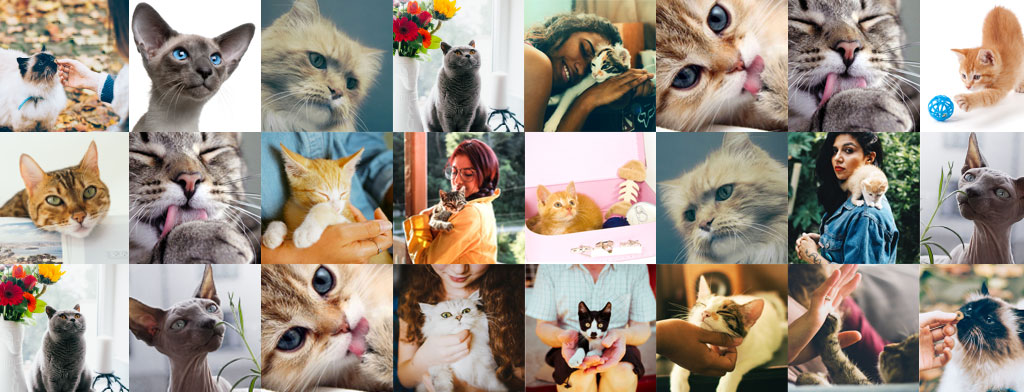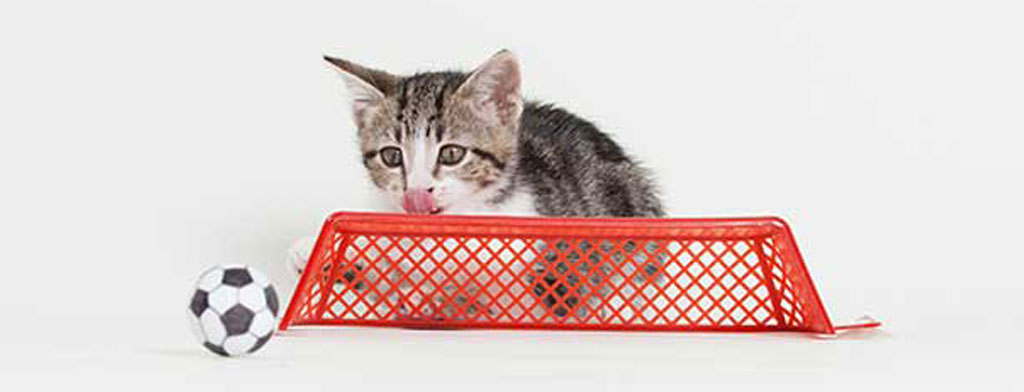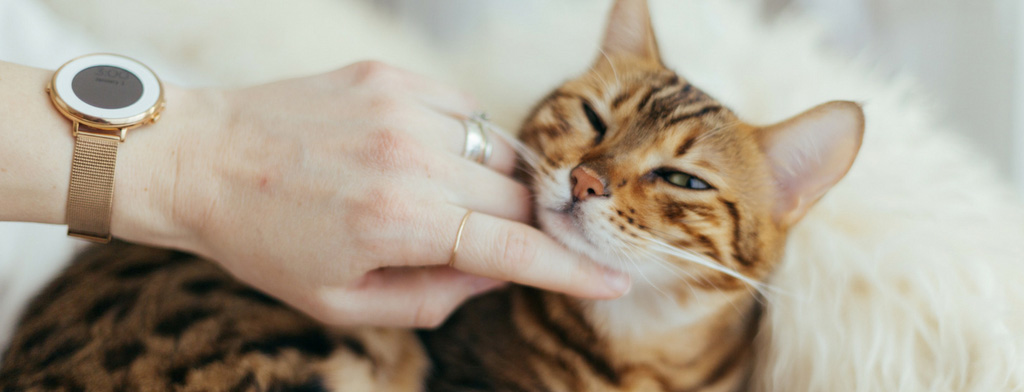Kitten Matters Cat

37 Kingsway
Cronulla NSW 2230 AU
02 9527 2604
cronullavetclinic@gmail.com

KITTEN MATTERS
Congratulations on your new addition to the family. This information sheet will hopefully guide you through the first exciting months of kitten ownership. If you have any questions or problems at all, please don’t hesitate to give us a call.
Vaccination Schedule
Unless specific outbreaks in the region warrant a more intensive vaccination program, our usual vaccination schedule is as follows:
1st vaccination 6-8 weeks of age F3 (Feline Enteritis and 2 Flu viruses)
2nd vaccination 12 weeks of age F3 (Feline Enteritis and 2 Flu viruses)
3rd vaccination 16 weeks of age F3 (Feline Enteritis and 2 Flu viruses)
The F3 vaccination being the Core Vaccination, which should be given to all cats to protect against severe life threatening diseases with a global distribution.
Additional vaccinations are possible against Feline Chlamydia, Feline Leukaemia Virus and Feline Immunodeficiency virus (FIV). These are the so-called Non-core, optional, vaccines, required for those cats with increased risk of contracting these viral diseases based on their geographical location, local environment or lifestyle.
Feline Chlamydia is a bacteria that can contribute to cat flu. It mainly occurs in young cats and is more likely to occur in multi cat environments such as catteries. It generally causes flu like symptoms such as conjunctivitis in one or both eyes and is treated with a course of antibiotics.
Feline Leukaemia Virus is uncommon in NSW. It mainly occurs in catteries and multi cat households, spreading through grooming and sharing food bowls. After infection, the virus can lay dormant and not cause problems until later in life. A blood test is available to detect this virus in infected cats.
FIV is more common and is spread mainly by cat bites. Therefore, if your kitten has any chance to become an outdoor cat sooner or later, it may be wise to start the vaccination protocol early.
A very small percentage of kittens may react to the vaccination by being a bit quiet for 24-48 hours, developing a small lump at the injection site or possibly develop a slight temperature and some muscle aches. Usually this will resolve without treatment, but please let us know if you have any concerns.
Worming
Regular intestinal worm treatments are very important in kittens. Kittens usually get infected early in life as roundworm larvae can pass from mother to kittens through the mother’s milk. Kittens can then reinfect each other and themselves through worm eggs passed in their stool.
We recommend worming kittens every fortnight until about 4 months old, and then every month until 6 months old, after that the adult schedule of one worm treatment every 3 months applies.
Weigh your kitten before each worming, especially while still growing, so he/she won’t be under dosed.
TIP – Weigh yourself on the bathroom scales then pick up your kitten and reweigh, the difference in your pups weight.
Heartworm
Heartworms are large parasites that live in the heart and large blood vessels of the lungs. Undetected they can cause heart failure and death.
Cats are also susceptible to heartworm disease but in cats only a small percentage of infective larvae actually manage to develop into adult heartworms. The frequency of heartworm disease in cats varies per area and depends on the dog population (especially the amount of unprotected dogs that have heartworm) in the area.
Heartworm in cats is more difficult to diagnose and treat than in dogs and can be fatal.
Common signs of heartworm disease:
- Coughing
- Exercise intolerance
- Weight loss
- Fainting
- Nosebleeds
Feline heartworm cases present very similarly to feline asthma with respiratory symptoms.
Tips to help prevent heartworms:
- Start your pet on heartworm preventatives from as early as 8 weeks of age
- Continuous, year-round prevention
- Mosquito control
Ask our friendly staff which products will be most suitable for you and your kitten.
Microchipping
In NSW under the Companion Animals Act, all cats (and dogs) born after July 1999 must be microchipped by the age of 12 weeks. The actual registration (and payment of lifetime fee) does not occur until the age of 6 months, however all the kittens and owners details will be on the council’s record so in case of your kitten getting lost, once found it is possible to contact you. Remember when you move house or change contact details to also update it on your kitten’s microchip!
If the kitten or pup has not been microchipped by the breeder or pet shop we can do it for you at the time of vaccination. It is a simple procedure, with the chip, the size of a grain of rice, being injected between the shoulder blades.
Desexing
As well as avoiding unwanted pregnancy and reducing the incidence of fight wounds and abscesses (or even viral infections such as FIV), desexing restricts the tendency for cats to wander and mark out their territory with urine. Desexing can be done in the adult cat at any age but is recommended for both male and female cats before 4 months of age. Research shows that desexed pets live longer and have reduced risks of a variety of health problems, including certain types of cancer.
Diet
We recommend feeding your kitten a complete and balanced diet. If at least 75% of a commercial dry food (or canned if preferred) is fed you can safely add some extras on the side (such as chicken, beef, pasta etc.) and still be sure your kitten still gets all the necessary vitamins, minerals and nutrients in the correct ratios. Cats are very specific in regard to their dietary needs, as there are some nutrients they need in their diet because they are unable to produce these themselves.
Good nutrition isn't just about the ingredients; it is also about finding the right balance of nutrients. The right level of nutrients promotes food health and quality of life. Premium diets such as Hills Science Diet, Eukanuba and Royal Canin have an excellent reputation and are highly recommended.
Caring for dental health is important. You could try tooth brushing, dental foods, chews such as Greenies (for kittens over 10-12 months old) and if your kitten can handle it, try raw bones such as chicken wings or necks (NEVER cooked) to help keep the teeth shiny and white.
Liver and fish may cause severe problems and should only be fed as a small portion of the diet, if at all. Some cats are unable to tolerate milk and will suffer diarrhoea if milk is given to them. Special cat milks are available but should only be given as a treat. Fresh water should be available at all times and is all a cat really needs to drink.
Fleas
Fleas can cause extreme skin irritations. Signs of irritation can be scratching or overgooming, with as a result hair loss and/or skin lesions. In some cases a pet can develop an allergy against flea saliva, which means one flea bite per week can keep the skin irritated, and the cat scratching/overgrooming. Therefore a good flea control is very important.
Only 5% of the total flea population lives on our pets as adult fleas and 95% of the flea population lives in the environment as flea eggs, larvae and pupae. Your flea prevention will be most successful if both the cat and the environment are treated regularly with a good flea product. Treat all animals in the household at the same time for the best results.
Please ask our staff for advice on the available treatments.
Kitten Socialisation
Socialising your kitten is very important. It allows your kitten to grow up to be a happy, well-adjusted pet. Introduce your kitten to a range of people and children of different ages, traffic, other animals etc. Encourage quiet, relaxing times as well as play time.
Playtime is a great form of exercise and offers many benefits:
- Eliminates boredom
- Relieves stress
- Releases excess energy
- Prevents obesity and weight-related diseases
- Strengthens the bond between you and your pet
- Builds confidence
- Is fun

Cats benefit from at least 15 to 20 minutes of play two or three times a day. For older cats, reduce the height of their scratching post so they don’t have to stretch so high. It’s important not to stop exercise, as this may cause weight gain.
Cats love to play. It is a great way to reduce stress, improve socialisation and get exercise. Play behaviour is based on their wild ancestors’ hunting games, like stalking, pouncing, climbing, and hiding.
There are special toys for cats. Lightweight balls, stuffed toys, toys that make noises, and interactive wand-type toys are great choices. Fishing pole toys are ideal, they keep you far enough from the cat to avoid being scratched. Move the toy in a mouse-like or snake-like movement to entice your cat to play. Don’t keep wool or string around the home, as it can cause stomach problems in cats.
- Alternate toys during play time and put them away between play sessions so your kitten won't get tired of them
- To challenge and stimulate your kitten buy intellectual toys, like a ball with flashing lights or a stuffed cat toy that makes sounds
- Play games that direct your kitten's playful energy away from you. Chasing ping pong balls is great fun
- Avoid games that encourage your kitten to pounce on moving fingers, hands, feet or legs. These could encourage aggression later.
- Despite the traditional image of a kitten playing with a ball of wool or string, these are dangerous if swallowed
- Consider giving your kitten opportunities to play with other (healthy) kittens, especially kittens close in age, to promote social behaviour
Training and Socialisation
All cats should be taught to come and to respond to their name. Training should start as soon as you adopt a pet. A well-trained pet is a happy pet. Owning a happy pet means giving it as many positive experiences as possible, especially from a young age. Kittens should be exposed to all types of people, animals, and environmental experiences to help with socialisation

Socialisation test for your kitten
- Roll a sheet of aluminium foil into a ball and place it in front of your pet. If your kitten remains or tries to rub against it, it is well socialised. If your kitten backs away or looks scared, it needs more socialisation.
- When your kitten is playing, gently clap your hands. If your kitten continues to play, it is well socialized. If your pet stops to look and backs away, it needs more socialisation.
Pet Insurance
Accidents or sudden illness can happen at any time and the cost factor of the necessary veterinary care can be an unexpected burden. Just like private health insurance for humans, there are various ways to insure your pet for accidents and/or illnesses. Some pet insurance plans even cover routine care such as vaccination, desexing, etc.
There are specialist pet insurance plans on the market or you may be able to get additional pet cover through your own insurers (e.g. as part of your home/contents insurance) or private health insurance.
All policies will have some exclusions, the most common being pre-existing conditions (those your pet has already suffered from before the insurance is taken out), anything related to pregnancy or birth and any routine, preventative or planned treatments (such as vaccinations, spaying and so on). Most policies have medical exclusion waiting periods from the start of a policy which range from 10 to 30 days. Some top cover policies can contribute a yearly amount to preventative care.
We are not affiliated with one particular pet insurance and don’t receive referral incentives but we do have some brochures from various companies if you are interested.
A link to pet insurance products available in Australia can be viewed here.
Cronulla Vet Clinic wishes you and your new Kitten all the best for the coming years and hope we can work together to keep your pet in the best possible health.